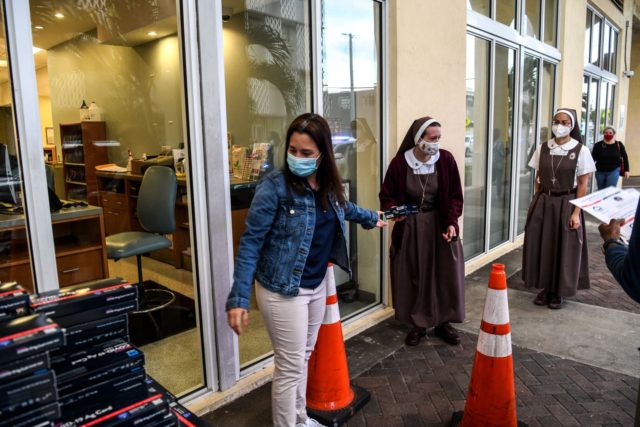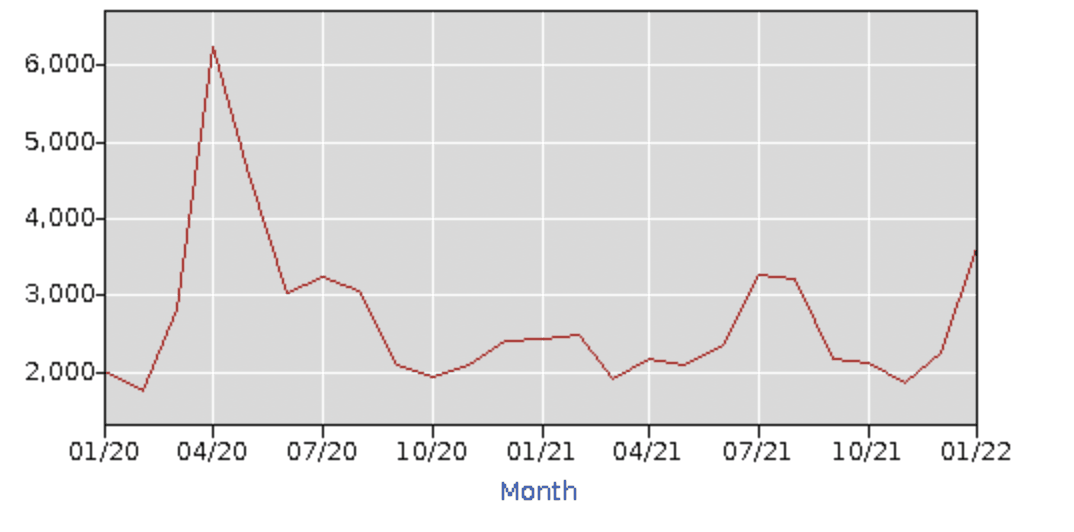The much better than expected jobs numbers for January belie the harsh reality that omicron sidelined millions of American workers last month, likely worsening supply chain stresses, shortages, and inflation.
The economy added 476,000 jobs as employers went on a hiring spree while keeping many workers who got sick on their payrolls. Unexpected strength in hiring in bars and restaurants, offices, and retail seemed to demonstrate that this wave of Covid-19 infections had far less of an impact on how Americans carried on with their lives than earlier waves.
This led to President Joe Biden to declare that America “is taking everything that Covid has to throw at us, and we’ve come back stronger.”
But that strength and the headline numbers disguised the real impact the spike in Covid-19 infections had on millions of workers, families, and businesses.
Data from the Bureau of Labor Statistics show that 4.2 million workers who normally work full-time said they had missed work or been forced to work part time in January because they became ill. That’s by far a record high. In December, the number was just 2.4 million. A year ago, prior to the widespread rollout of the vaccines, just 1.8 million workers said they had been sidelined by illness. On average, since the mid-seventies, around 2.2 million workers miss work or work part-time because of illness in January.
This was the biggest month of the pandemic for workers sidelined by their own illness, according to BLS figures released Friday.
Similarly, the number of workers with a job who said they had an unpaid absence in January surged to 3.6 million from 2.3 million in December. This makes it the worst January on record and the third-worst even in records going back to 2000. The only months that were worse were April and May of 2020, when much of the economy was locked down during the initial phase of the pandemic.
Another statistic from the BLS report: the number of people saying they couldn’t work because the pandemic impacted their employer almost doubled to 6 million in January. Among those who reported in January that they were unable to work because of pandemic-related closures or lost business, 23.7 percent received at least some pay from their employer for the hours not worked, up from 15.9 percent in the prior month. That means employers paid 1.42 million people despite the pandemic impact in January, up from 492,000 in December.
The Census Bureau, which is part of the Commerce Department, recently began collecting Covid-19 specific data on workers. It describes the data as “experimental” because much of it is so new and its reliability is still open to question. The most recent data was collected from December 29, 2021 through January 10, 2022, which means it ends right about when the Department of Labor’s job survey begins.
During that period, there were 8.75 million Americans not working because they had coronavirus or were taking care of someone who did, according to the data. That’s a huge jump from the December data showing 2.95 million. The number saying they did not work because they were worried about catching the virus climbed from 2.56 million in December to 3.21 million in January.
Back in August, while the Delta variant raged across the country, 2.94 million people said they were out because they had the virus or were taking care of someone who did. But a similar 3.2 million said they missed work because of concern about becoming sick.
Both the Census Bureau and BLS data showing workers out sick come from surveys of households, which ask Americans to describe their own situation. That’s also the source of the government’s data on the unemployment rate, workforce participation, and employment-to-population ratios. The headline jobs figure that came in so strong is from a survey that asks businesses to report how many workers they have on the payroll.



COMMENTS
Please let us know if you're having issues with commenting.